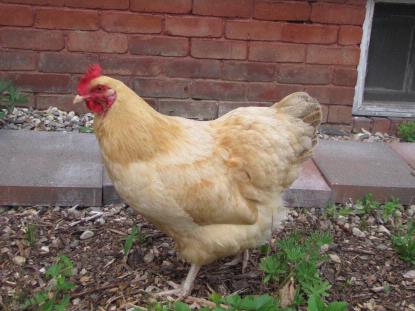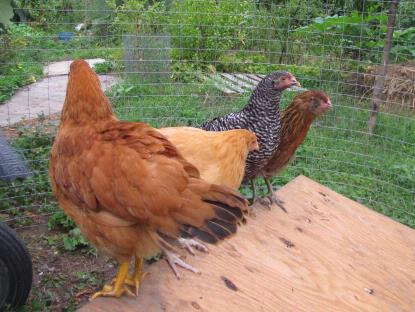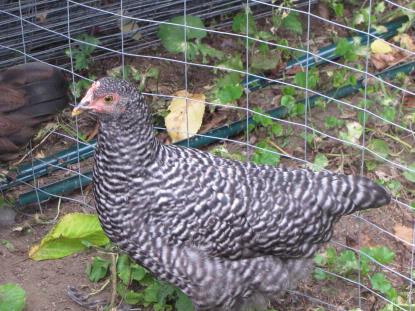We used to have an earthy, ranch-owning president who was connected with the common man. It was said that you might want to have a beer with him, even though he was a teetotaler. As an effete liberal elite, I never wished to spend time with him, nor did I buy his connection to the earth: he may dress like a rancher, but doesn’t smell like one; that’s because ranching and farming are work. He merely adopted the dress and attempted to borrow the language.
After the Abu Ghraib debacle, our president insisted that it was the act of “a few bad apples.” Perhaps so, but he displayed a lack of understanding of the phrase: a few bad apples spoil the barrel (or bunch). When apples ripen they release ethylene that causes others to ripen. When they become infected and rot (go bad), other apples get infected too. If there were a few bad apples, you’re going to wind up throwing out the whole bunch. I am guessing he wasn’t recommending getting id of the military because of a few bad apples.
We have lots of expressions linked to agricultural life that really don’t resonate anymore. One of my chickens likes to incubate the flock’s eggs. I don’t have a rooster: she practices abstinence only birth control. Our former president would have approved. Sure, she’s a bit delusional, but if you go to bother her she puffs up her feathers: her feathers get ruffled, or she gets them in a ruff. In the evening, my chickens come home to roost. Not metaphorically, really. Once they’re cooped up, they poop all over the place.
It makes sense that metaphors would refer to the beasts everyone is familiar with. Before the modern era, chickens were a part of every day life for all but the very wealthy. They forage for their own food, but like to come home every night. If given a nice spot, most will lay eggs there every day. Once they’ve stopped laying eggs you can eat them. As I understand it, they taste just like chicken.
Even the Gospels use chickens. Matthew 23:37 (KJV) “O Jerusalem, Jerusalem, thou that killest the prophets, and stonest them which are sent unto thee, how often would I have gathered thy children together, even as a hen gathereth her chickens under her wings, and ye would not!” For anyone in the years preceding the twentieth century this would have been an image from their own yard..
Though it’s changing, chickens aren’t so common anymore and the vast majority don’t take care of their own chicks. A linguistics teacher told me that after the Norman conquest of England, English changed. Old English slowly turned into Middle English. One striking change is that most meat names come from French (beef, mutton, veal, pork) — the eaters spoke French. The animals kept their English names — the farmers were English. Chicken (and a few others) is an exception. it’s the bird of the people.
Our language continues to evolve of course. The other day the lovely “lady” on my voice mail asked me if I wished to “mark this message unread.” Of course I hadn’t “read” any of my messages. More chickens, less email: do it for our language.
We used to have an earthy, ranch-owning president who was connected with the common man. It was said that you might want to have a beer with him, even though he was a teetotaler. As an effete liberal elite, I never wished to spend time with him, nor did I buy his connection to the earth: he may dress like a rancher, but doesn’t smell like one; that’s because ranching and farming are work. He merely adopted the dress and attempted to borrow the language.

After the Abu Ghraib debacle, our president insisted that it was the act of “a few bad apples.” Perhaps so, but he displayed a lack of understanding of the phrase: a few bad apples spoil the barrel (or bunch). When apples ripen they release ethylene that causes others to ripen. When they become infected and rot (go bad), other apples get infected too. If there were a few bad apples, you’re going to wind up throwing out the whole bunch. I am guessing he wasn’t recommending getting id of the military because of a few bad apples.
We have lots of expressions linked to agricultural life that really don’t resonate anymore. One of my chickens likes to incubate the flock’s eggs. I don’t have a rooster: she practices abstinence only birth control. Our former president would have approved. Sure, she’s a bit delusional, but if you go to bother her she puffs up her feathers: her feathers get ruffled, or she gets them in a ruff. In the evening, my chickens come home to roost. Not metaphorically, really. Once they’re cooped up, they poop all over the place.

It makes sense that metaphors would refer to the beasts everyone is familiar with. Before the modern era, chickens were a part of every day life for all but the very wealthy. They forage for their own food, but like to come home every night. If given a nice spot, most will lay eggs there every day. Once they’ve stopped laying eggs you can eat them. As I understand it, they taste just like chicken.
Even the Gospels use chickens. Matthew 23:37 (KJV) “O Jerusalem, Jerusalem, thou that killest the prophets, and stonest them which are sent unto thee, how often would I have gathered thy children together, even as a hen gathereth her chickens under her wings, and ye would not!” For anyone in the years preceding the twentieth century this would have been an image from their own yard..
Though it’s changing, chickens aren’t so common anymore and the vast majority don’t take care of their own chicks. A linguistics teacher told me that after the Norman conquest of England, English changed. Old English slowly turned into Middle English. One striking change is that most meat names come from French (beef, mutton, veal, pork) — the eaters spoke French. The animals kept their English names — the farmers were English. Chicken (and a few others) is an exception. it’s the bird of the people.

Our language continues to evolve of course. The other day the lovely “lady” on my voice mail asked me if I wished to “mark this message unread.” Of course I hadn’t “read” any of my messages. More chickens, less email: do it for our language.





